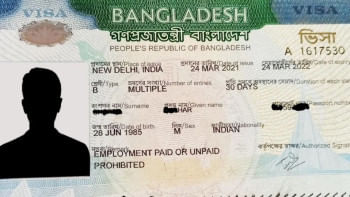CARL FROELICH

Bio: Carl August Hugo Froelich, born on 5 September 1875, was a German film pioneer and film director. He made 77 films between 1912 and 1951. His first "cinematic" contacts came about as an employee of the Oskar Messter Company where he worked in the construction department for cinematographic apparatuses. In 1913, Froelich made his directorial debut with Richard Wagner. In 1920 he established his own company, Froelich-Film GmbH, where he produced "Kabale und Liebe" (1921), "Die Brüder Karamasoff" (1922), and "Mutter und Kind" (1924). He often filmed with the actress Henny Porten, who made her screen debut in one of his earliest films.
When the silent movie era drew to a close, Carl Froelich was one of the first Germans who saw the upheaval and faced the sound movie with confidence. Froelich made a sound film in 1929 titled "Die Nacht gehört uns" ("The Night Belongs to Us"). There exists a story that the directors Froelich, Ewald André Dupont and Georg Wilhelm Pabst made a bet during their stay in London, who of them will be able to shoot the first German sound movie. However the bet could never be settled clearly because Dupont shot the first sound movie but it wasn't a German movie.
In 1930 Froelich took ownership of two glasshouses in Berlin-Tempelhof, and reconstructed them to sound film studios. Here he produced many films, including Rolf Hansen's short film "Das Schönheitsfleckchen" (1936) ("The Beauty Spot"), the first German drama film to be shot in colour. By 1933 Froelich was one of Germany's most widely acclaimed film producers and directors, putting out successful films with all the leading names of the industry from that period, ranging from Hans Albers, Heinz Rühmann to Ingrid Bergman and Zarah Leander.
Froelich joined to become a member of the National Socialist Party in 1933 and took over the direction of the Gesamtverbandes der Filmherstellung und Filmverwertung ("Union of Film Manufacture and Film Evaluation"). Later in 1939, he was appointed as the president of the Reichsfilmkammer, an office which he retained until the end of the war in 1945. The Reichsfilmkammer was a subsidiary of the Reichskulturkammer, which as a National Socialist organisation which controlled the access to all artistic professions. He was one of the few filmmakers that received the title "Filmprofessor" from Goebbels.
After the war ended, Froelich was arrested and in 1948, de-Nazified by the allied forces. What was left of his film studio had been badly damaged during the war and the conditions did not allow him to resume production. His previous involvements with the Nazi regime were also unaccepted in the post-war German society, and it was increasingly difficult for him to receive clearance to screen any of his works. Only two more films were made under his direction before his death: "Drei Mädchen spinnen" and "Stips."
NOTABLE WORKS: Some of the best-known of the films he made during this period were:
1934: "Ich für dich, du für mich" for the Reich Propaganda Directorate of the NSDAP.
1938: "Heimat", which won the award for Best film at the Venice Film Festival that year.
1940: "Das Herz der Königin", an anti-British historical film about Mary, Queen of Scots.
1941: "Der Gasmann", a propaganda film, in which Heinz Rühmann plays a meter reader suspected of being a foreign spy.
by Mohaiminul Islam


 For all latest news, follow The Daily Star's Google News channel.
For all latest news, follow The Daily Star's Google News channel. 




Comments